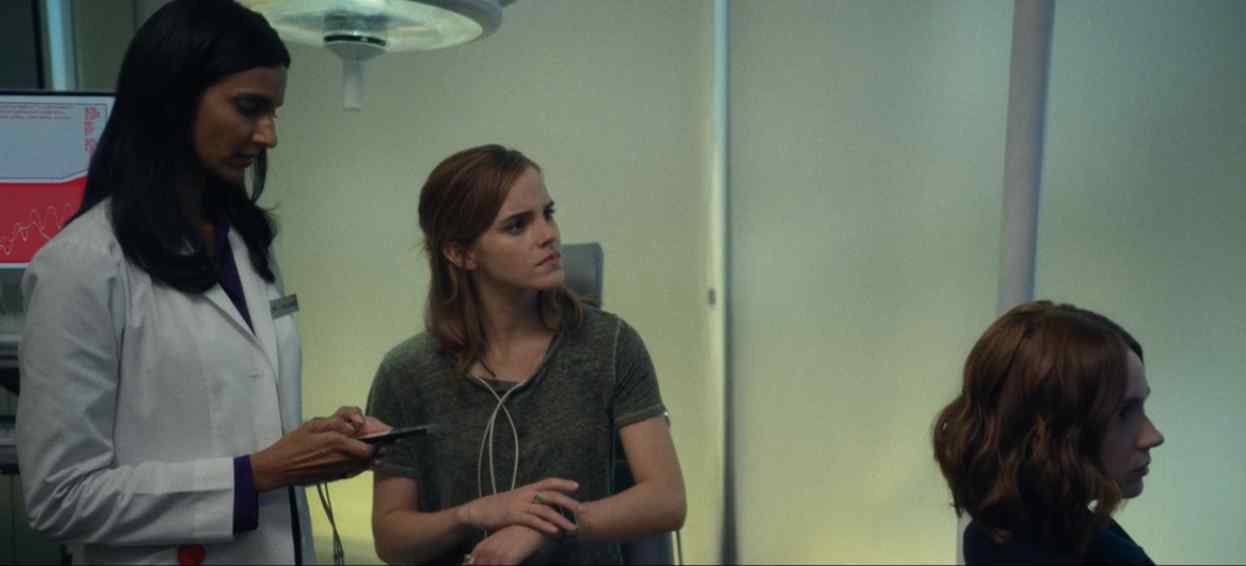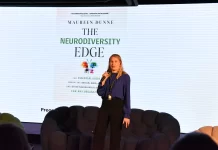
Technology brings up mixed feelings among people. While most of us rely on them in our daily tasks: the likes of performing well in our workplaces, doing the weekly shopping or fulfilling our social needs; it can also evoke a sense of fear for how much do we need them or, even, how little control do we bear of our own lives. Most importantly, we don’t really know how far technology will get us to, though there is a glimpse, a sort of a hunch, that says technology will be even more intrusive in the near future.
Last year’s Netflix original film The Circle, did point out in that direction, amid keeping it grounded enough to feel real and close to our times. Openness was the motto of the Facebook-like company The Circle, an all-inclusive Silicon Valley giant organisation trying to bring people together through their social media services. Things got a bit messed up when CEO Eamon (Tom Hanks) showcased a tiny camera able to live broadcasting via satellite from every corner of the planet through their services. Reticent new employee Mae Holland (Emma Watson) ended up embracing this transparent philosophy putting up a camera on her and streaming in it 24/7 on her social media.
As a not-too-far dystopian film, everything got messed exponentially in its 1h49m long until it reached its commonly shared a-bit-too-predictable end. However, the film takes up some interesting technologies and ideas that most companies out there, such as Google, Facebook or Apple, are following and gradually implementing across their services.
Here is a list of 3 real technologies and their implications from the film already out and functional in the market:
1. High-tech Medical Bracelets (Medical Care Records)
Main protagonist Mae Holland had to go over a whole health check when she first arrived at The Circle’s campus. In there, she is provided with a high-tech medical bracelet, GPS integrated, which is able to follow her steps – literally – and keep records on real-time about her medical condition. The bracelet tracks her intravenous system, her heart rate and her overall health. “Sounds a lot like an Apple Watch, or health insurance-sponsored Fitbits, now a common perk at companies that offer incentives toward weekly step counts (tracking employee movement through programs like Walkadoo),” added Andrea Mandell at USA Today.

2. Biometric Scans (AI identification)
One of the main technologies that features the The Circle’s True You social media is the ability to collect, scan and keep records of their users once they become part of the service. In that world where everything is livecasting and shared upon, they proceeded to a demo to showcase their biometric technology where Mae Holland is tasked to find a long-running fugitive.
Biometric technology is now implemented in high-end phones. The latest Samsung S9+ comes with a fully upgraded face recognition and iris scanning technology combined while Apple’s Face ID is so reliable that it allows to make any purchase using your face features. It can also be seen on the new issued e-Passports, which they come with a contactless chip that holds face traits along with all user’s data.

3. Tiny marble-ball size cameras (Privacy vs Public dichotomy)
The feature that starts all the drama within the film is when CEO Eamon showcased a brand new eye-ball size cameras. Connected via satellite and highlighting long-lasting batteries, they can be attached anywhere and start broadcasting right away. No matter where they have been installed, they record everything. That’s the premise where the film starts from: “Knowing is good, but knowing everything is better.”
This idea, messing around with the limits of what can be streamed or shared without crossing other’s privacy might be the great dichotomy of our times. Nonetheless, companies push and draw their strategies towards complete openness among their users while more people start questioning their right to disconnect.
Our phones feature 2 integrated cameras, cities, airports, roads, buildings all count with CCTV while most satellites have installed high-resolution cameras on them. Without going any further, Amazon’s Echo Look “combines an in-home camera with an intelligent voice assistant called Alexa. (The device was launched on the same day that The Circle premiered.) Take a picture of your outfit with the Echo Look, and Alexa will use AI to give you fashion advice. Its powers of analysis, and intrusion, surpass anything portrayed in the film,” tipped out an article published on the Financial Times.

Bonus: A Futuristic Enterprise featured by the always-happy status
As if it were living in a parallel universe, The Circle’s premises highlighted an always happy workplace with loads of off-work activities, playrooms, Weekend’s events, concerts, “community sticks together” and so forth.
Mae Holland was even told off in a “cool” manners for not having set her social network account just yet, although it was, of course “optional”. They also kept track on what events she used to assist to and which ones she didn’t. Also equally important was to keeping a smile on her face in this trend of positive reinforce whatever the cost. The result, an almost imposed always-happy status throughout the campus.
“Employees at The Circle were coerced into socializing their entire day: what they’re interested in, how they’re feeling, what their plans are. The dark side, of course, is that none of that information actually belongs to them anymore,” said Andrea Mandell, and he continued with “this debate is already raging, not just for the millions glued to Facebook, Snapchat and Instagram, but also for those who are simply scrolling through Amazon Prime on their computers. Thanks to Donald Trump’s recent rollback of Internet privacy rules passed last year by the Federal Communications Commission, it’s now legal for Internet providers to sell customers’ information — including their search histories. Welcome to the future.”

Hernaldo Turrillo is a writer and author specialised in innovation, AI, DLT, SMEs, trading, investing and new trends in technology and business. He has been working for ztudium group since 2017. He is the editor of openbusinesscouncil.org, tradersdna.com, hedgethink.com, and writes regularly for intelligenthq.com, socialmediacouncil.eu. Hernaldo was born in Spain and finally settled in London, United Kingdom, after a few years of personal growth. Hernaldo finished his Journalism bachelor degree in the University of Seville, Spain, and began working as reporter in the newspaper, Europa Sur, writing about Politics and Society. He also worked as community manager and marketing advisor in Los Barrios, Spain. Innovation, technology, politics and economy are his main interests, with special focus on new trends and ethical projects. He enjoys finding himself getting lost in words, explaining what he understands from the world and helping others. Besides a journalist, he is also a thinker and proactive in digital transformation strategies. Knowledge and ideas have no limits.

























